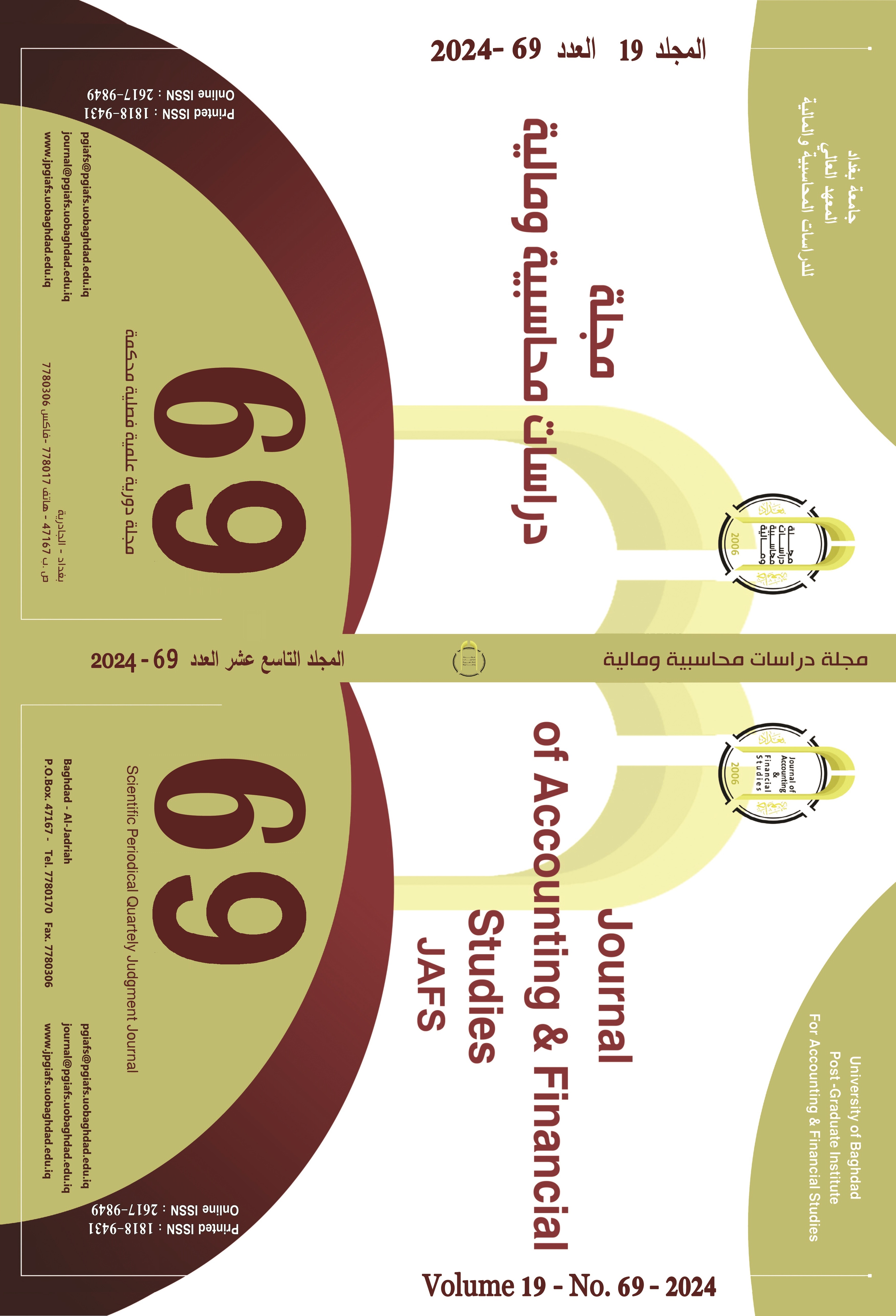The Impact of Implementing the Extended Business Reporting Language (XBRL) on the Effectiveness of the Audit Role of the Banking Supervision Department
دراسة استطلاعية لعينة من العاملين في بعض الوحدات الاقتصادية المدرجة في سوق العراق للأوراق المالية
DOI:
https://doi.org/10.34093/1wqjph31Keywords:
eXtensible Business Reporting Language (XBRL), Banking Supervision DepartmentAbstract
The research aims to demonstrate the impact of implementing eXtensible Business Reporting Language (XBRL) in the Banking Supervision Department at the Central Bank of Iraq, highlighting its modern capabilities in facilitating the exchange of financial information among financial institutions. This technology is utilized in areas of disclosure and financial oversight, providing an additional advantage to the supervisory role of the Central Bank of Iraq, particularly in the Banking Supervision Department. XBRL is an effective means to enhance the quality of disclosure in financial reports, thereby improving audit effectiveness and ensuring the continuity of private banks. Financial data can be exchanged and transformed into a digital format that is easily understandable and comparable through a taxonomy issued and prepared by international accounting standards-setting bodies, whether GAAP or IFRS. Economic entities can implement any accounting system compatible with regulations to ensure the definitional structure of each term in the taxonomy. This language also impacts audit functions, aiding in better identification and rapid mitigation of financial and banking risks, contributing to the continuity of representation within the research community of the Banking Supervision Department at the Central Bank of Iraq. The research sample consisted of Bank X, with the researcher relying on the financial statements for the period 2020-2021. XBRL was applied using algorithmic programs represented by XML, HTML, and CSS. One of the key findings was the significant impact of XBRL implementation on the auditing process, as well as its active contribution to identifying risks faced by banks. Among the main recommendations was the necessity of implementing XBRL to enhance the effectiveness of financial information exchange between private banks and the Banking Supervision Department, thereby achieving audit effectiveness and mitigating cases of failure and distress that banks may encounter.
Downloads
Published
Issue
Section
License
The copyright is transferred to the journal when the researcher is notified of the acceptance of his research submitted for publication in the journal.



